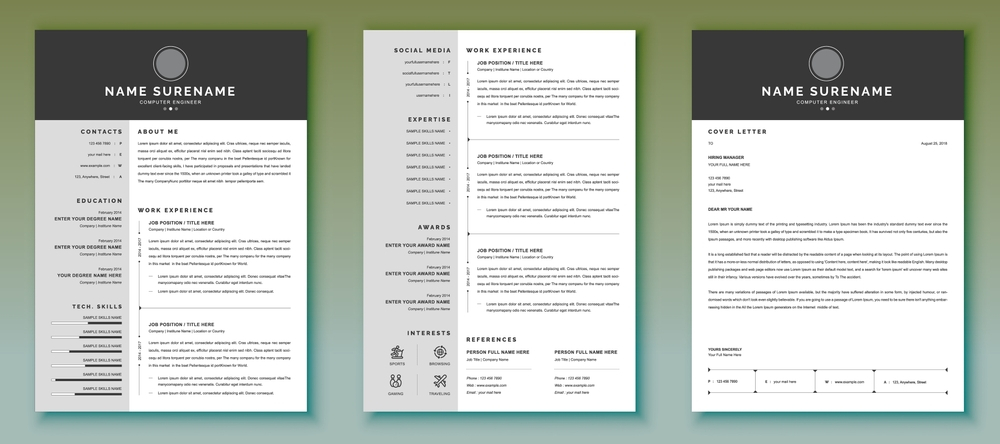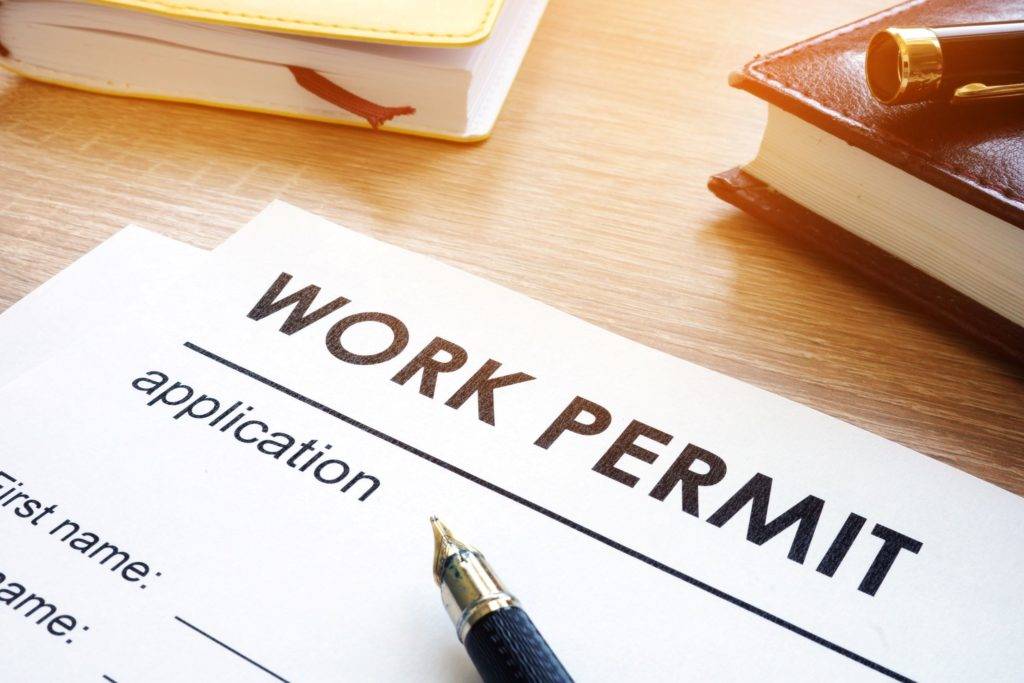Secrets to Creating a Standout Remote Job Resume
With the rise of remote work opportunities, having a strong resume is more important than ever. Employers are looking for candidates who can effectively showcase their skills, experience, and ability to thrive in a remote work environment. But what separates a good remote job resume from a truly standout one?
In this article, we’ll reveal the secrets to creating a resume that captures the attention of remote job employers and sets you apart from the competition.
By the end of this post, you’ll have a clear understanding of how to tailor your resume to remote jobs, highlight your remote work experience, and demonstrate the key skills and technologies that employers are looking for.
1. Tailor Your Resume to the Remote Job
One of the most important secrets to creating a standout remote job resume is to tailor it to the specific job you’re applying for. Generic, one-size-fits-all resumes are unlikely to capture the attention of remote job employers, who are looking for candidates with specific skills and experience.
 Start by carefully reading the job description and identifying the key requirements and qualifications for the role. Then, customize your resume to highlight the skills and experience that directly relate to those requirements.
Start by carefully reading the job description and identifying the key requirements and qualifications for the role. Then, customize your resume to highlight the skills and experience that directly relate to those requirements.
For example, if the job description emphasizes the need for strong written communication skills, make sure to highlight any relevant writing experience or projects on your resume. If the role requires experience with specific remote work tools like Zoom or Slack, be sure to mention your proficiency with those technologies.
By tailoring your resume to the specific remote job, you demonstrate to employers that you have the skills and experience they’re looking for, and that you’re a strong fit for the role.
Read: Remote Jobs in Tech vs. Remote Jobs in Healthcare: Which Pays More?
2. Emphasize Your Remote Work Experience
If you have previous experience working remotely, it’s important to showcase that on your resume. Remote work experience is highly valuable to employers, as it demonstrates your ability to work independently, manage your time effectively, and collaborate with remote teams.
When highlighting your remote work experience, be specific about the nature of your work and the results you achieved. For example, instead of simply listing “Remote Customer Service Representative,” you might say “Provided remote customer support for a global software company, resolving an average of 50 customer inquiries per day and maintaining a 95% customer satisfaction rating.”
If you don’t have direct remote work experience, look for ways to highlight transferable skills or experiences that demonstrate your ability to work independently and collaboratively. For example, if you’ve worked on a virtual group project for a class or volunteered remotely for an organization, be sure to include those experiences on your resume.
3. Highlight Your Communication and Collaboration Skills
Strong communication and collaboration skills are essential for success in a remote work environment. Without the benefit of face-to-face interactions, remote workers must be able to communicate clearly and effectively through digital channels like email, instant messaging, and video conferencing.
On your resume, highlight any experiences or projects that demonstrate your strong communication and collaboration skills. For example, if you’ve led a virtual team or collaborated with colleagues across different time zones, be sure to mention those experiences.
You can also showcase your communication skills through the language and tone of your resume itself. Use clear, concise language and avoid jargon or technical terms that may be unfamiliar to the reader. Proofread your resume carefully to ensure that it’s free of errors and easy to read.
4. Showcase Your Technology Skills
 Remote work often requires proficiency with a variety of digital tools and technologies, from video conferencing software to project management platforms. Employers want to know that you have the technical skills necessary to work effectively in a remote environment.
Remote work often requires proficiency with a variety of digital tools and technologies, from video conferencing software to project management platforms. Employers want to know that you have the technical skills necessary to work effectively in a remote environment.
On your resume, highlight any relevant technology skills or certifications you possess. For example, if you’re proficient with remote work tools like Zoom, Slack, or Asana, be sure to list those skills in a prominent location on your resume.
You can also demonstrate your technology skills through the formatting and design of your resume itself. Use a clean, professional format that’s easy to read on a screen, and consider using a digital resume platform like LinkedIn or a personal website to showcase your skills and experience.
Read: Zoom vs. Skype: Which Video Conferencing Tool is Better for Remote Teams?
5. Demonstrate Your Time Management and Organization Skills
Remote work requires strong time management and organization skills, as workers must be able to manage their own schedules and priorities without direct supervision. Employers want to know that you have the discipline and focus necessary to work independently and meet deadlines.
On your resume, highlight any experiences or projects that demonstrate your time management and organization skills. For example, if you’ve successfully managed multiple projects with competing deadlines, or if you’ve created systems to streamline your workflow, be sure to mention those accomplishments.
You can also demonstrate your organization skills through the structure and formatting of your resume itself. Use clear headings and bullet points to break up your content and make it easy to scan, and consider using a reverse-chronological format to highlight your most recent and relevant experiences.
6. Include Relevant Certifications or Training
In addition to your work experience and skills, relevant certifications or training can help your remote job resume stand out to employers. Certifications demonstrate your expertise and commitment to professional development, while training courses show that you’re actively working to improve your skills and stay up-to-date with industry trends.
When deciding which certifications or training to include on your resume, focus on those that are most relevant to the remote job you’re applying for. For example, if you’re applying for a remote digital marketing position, a certification in Google Digital Marketing or a training course in social media marketing would be highly relevant and valuable to include.
When listing certifications or training on your resume, be sure to include the name of the certification or course, the issuing organization, and the date of completion. For example:
- Google Analytics Individual Qualification (Google), June 2022
- Remote Work Excellence Certificate (LinkedIn Learning), April 2023
7. Optimize Your Resume for Applicant Tracking Systems (ATS)
Many remote job employers use Applicant Tracking Systems (ATS) to manage and screen job applications. These software systems scan resumes for specific keywords and qualifications, and may automatically reject resumes that don’t meet certain criteria.
To ensure that your remote job resume makes it past the ATS and into the hands of a human recruiter, it’s important to optimize it for these systems. Here are a few tips to help you do that:
- Use relevant keywords: Include keywords from the job description throughout your resume, particularly in the skills and experience sections. For example, if the job description mentions “remote team management,” be sure to include that phrase in your resume.
- Use standard section headings: Use common section headings like “Work Experience,” “Education,” and “Skills” to make it easy for the ATS to parse your resume.
- Avoid unusual fonts or formatting: Stick to standard fonts like Arial or Times New Roman, and avoid using tables, columns, or images, which may not be readable by the ATS.
- Save your resume as a simple file type: Save your resume as a .docx or .pdf file, rather than a more complex file type like .pages or .rtf.
Read: The 10 Best and Worst Industries for Remote Work
8. Use a Clear and Professional Format
The format and design of your remote job resume are just as important as the content itself. A clear, professional, and easy-to-read format will help your resume stand out to employers and demonstrate your attention to detail and communication skills.
Here are a few tips for creating an effective remote job resume format:
- Use a simple, clean layout: Avoid cluttered or overly designed layouts, and stick to a simple, easy-to-read format with plenty of white space.
- Use clear headings and bullet points: Use bold headings to separate sections of your resume, and bullet points to break up long paragraphs and make your content easy to scan.
- Keep it concise: Aim for a resume that’s no longer than two pages, and focus on your most relevant and impressive experiences and skills.
- Use a professional font: Stick to professional fonts like Arial, Calibri, or Times New Roman, and avoid using fancy or hard-to-read fonts.
- Consistent formatting: Use consistent formatting throughout your resume, such as the same font size and style for headings and bullet points.
9. Proofread and Edit Your Resume
Finally, one of the most important secrets to creating a standout remote job resume is to proofread and edit it carefully before submitting your application. Even small errors or typos can make your resume look unprofessional and damage your chances of getting the job.
Here are a few tips for effectively proofreading and editing your remote job resume:
- Take a break: After you’ve finished writing your resume, take a break and come back to it later with fresh eyes. This will help you catch errors or awkward phrasing that you might have missed before.
- Read it out loud: Reading your resume out loud can help you catch errors or awkward phrasing that you might not notice when reading silently.
- Use spell check and grammar tools: Use the spell check and grammar tools in your word processing software to catch any obvious errors or typos.
- Ask for feedback: Ask a friend, family member, or mentor to review your resume and provide feedback on its content, format, and overall effectiveness.
- Double-check details: Double-check important details like dates, job titles, and company names to ensure that they’re accurate and consistent throughout your resume.














Hi I would like to have a forklift operator job or driving